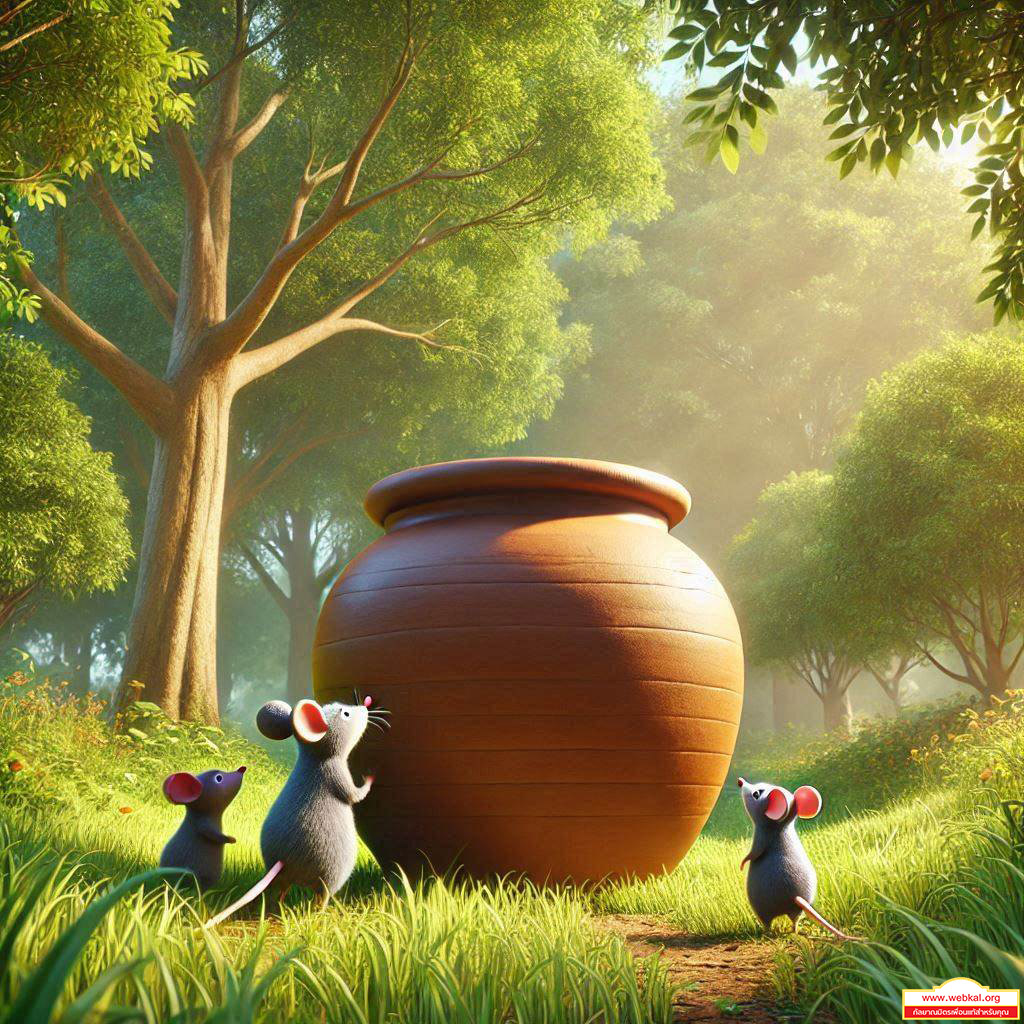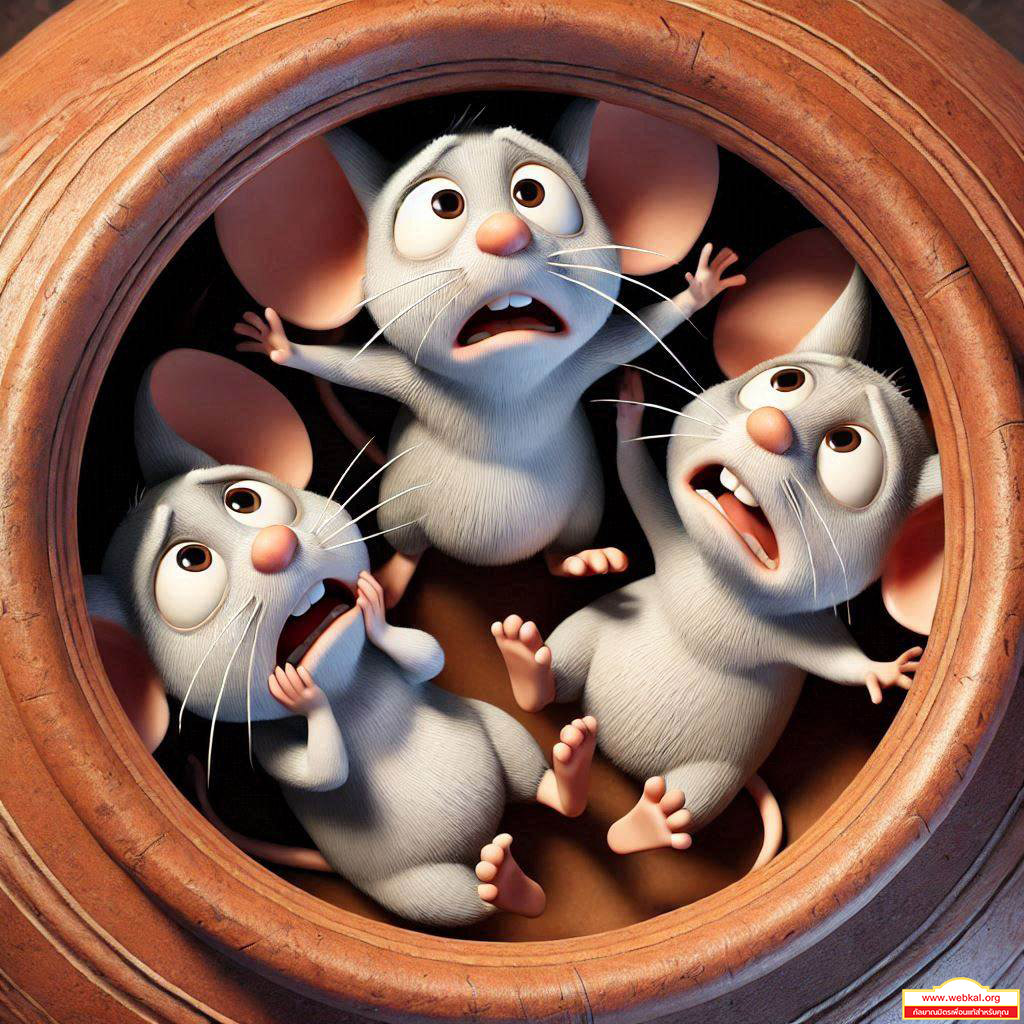
หนูสามตัว

หนูสามตัวที่กระหายน้ำอย่างมาก ขณะที่เดินอยู่ได้พบอ่างใบใหญ่ที่มีน้ำอยู่ก้นอ่างเพียงเล็กน้อยเท่านั้น

แต่อ่างใบนี้ลึกมาก พวกมันจึงตกลงกันว่าจะต่อตัวโดยการจับหางกันและกันแล้วพลัดกันดื่มน้ำ พวกหนูค่อยๆ หย่อนเจ้าหนูตัวแรกให้ลงไปดื่มน้ำก่อน แต่เมื่อหนูตัวแรกดื่มน้ำเสร็จแล้วนั้นน้ำในอ่างก็เกือบหมดเต็มที

เมื่อหนูตัวที่สองเห็นว่าน้ำเกือบจะหมดแล้ว จึงคิดในใจว่า "น้ำที่เหลือคงไม่พอสำหรับข้าแน่" ขณะเดียวกันหนูตัวที่สามก็คิดว่า "เพื่อนๆ คงดื่มน้ำกันหมดไม่เหลือถึงข้าแน่"

ไม่นานนัก พวกหนูก็พากันกระโดดลงไปแย่งกันดื่มน้ำที่เหลืออยู่ เมื่อดื่มน้ำจนหมดแล้วพวกมันจึงตระหนักได้ว่า อ่างนั้นสูงและลึกเกินกว่าที่พวกมันจะกลับขึ้นไปยังโลกเบื้องบนได้อีกต่อไปแล้ว
นิทานเรื่องนี้สอนให้รู้ว่า
ความเห็นแก่ตัวและการขาดความสามัคคีส่งผลให้เกิดความสูญเสียและความลำบากต่อทุกฝ่าย การมองเพียงผลประโยชน์เฉพาะหน้าหรือความโลภ ทำให้พลาดโอกาสในการแก้ไขปัญหาอย่างยั่งยืนและส่งผลเสียระยะยาว
The Three Mice
Three thirsty mice were walking when they found a large tub with a tiny bit of water left in the bottom.
The tub, however, was very deep, so the mice agreed to make a chain by holding each other's tails, to take turns drinking. The mice slowly lowered the first mouse down to the water, but when the first mouse had finished drinking, the water was almost gone.
The second mouse saw that the water was almost finished, and though remaining water is not enough for me for sure!" At the same time, the third mouse thought, "The others will have finished the water before I get to drink any!
Shortly after, the mice jumped into the tub, and greedily drank the rest of the water. When the water had gone, the mice realized that the sides of the tub were too high, and was too deep for them to ever get out.
This story teaches us that:
Selfishness and lack of unity lead to losses and hardships for all parties involved. Focusing only on immediate benefits or greed misses opportunities to solve problems sustainably and has long-term negative effects.
สอดคล้องกับหลักพระพุทธศาสนา
หลักสังคหวัตถุ 4:
หลักอกุศลมูล 3:
หลักอริยสัจ 4: